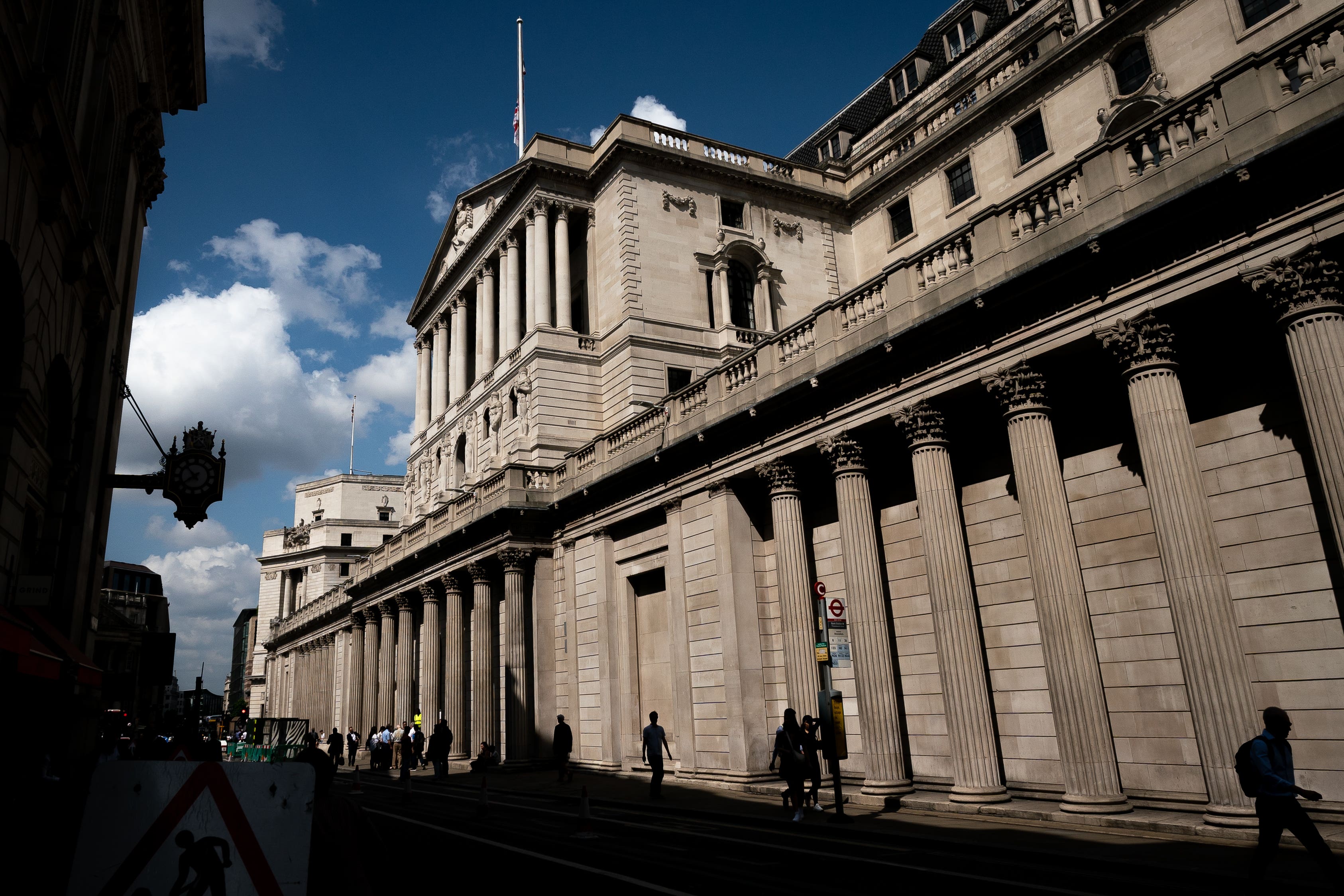Bank too slow to ‘wake up’ to inflation threat, former deputy governor says
Sir Charles Bean agreed with economic experts that the Bank of England has made mistakes in its recent inflation modelling.

Your support helps us to tell the story
From reproductive rights to climate change to Big Tech, The Independent is on the ground when the story is developing. Whether it's investigating the financials of Elon Musk's pro-Trump PAC or producing our latest documentary, 'The A Word', which shines a light on the American women fighting for reproductive rights, we know how important it is to parse out the facts from the messaging.
At such a critical moment in US history, we need reporters on the ground. Your donation allows us to keep sending journalists to speak to both sides of the story.
The Independent is trusted by Americans across the entire political spectrum. And unlike many other quality news outlets, we choose not to lock Americans out of our reporting and analysis with paywalls. We believe quality journalism should be available to everyone, paid for by those who can afford it.
Your support makes all the difference.The Bank of England misjudged the threat of inflation and did not move quick enough to raise interest rates, the Bank’s former deputy governor has suggested.
Sir Charles Bean, along with three economic experts during a wide-reaching Treasury Committee probe, agreed that the Bank has made mistakes in its recent inflation modelling.
He said major central banks were too slow to “wake up” to the need to stop stimulating the economy following the pandemic, which helped fuel inflation.
I think they were all too slow to pivot to the dangers of a significant increase in inflation and the need to withdraw some of the, in my view, excessive monetary stimulus injected during the pandemic
He told a group of MPs: “I think there was a problem with group think across the central banking fraternity – basically the Fed, the ECB (European Central Bank), the Bank of England, other central banks, for the past decade or so, have all been focused on how do we inject sufficient demand in the economy to get inflation up to meet our targets.
“I think they were all too slow to pivot to the dangers of a significant increase in inflation and the need to withdraw some of the, in my view, excessive monetary stimulus injected during the pandemic.
“They were certainly slow to wake up to the need to be withdrawing stimulus.”
It comes as the Bank of England lifted interest rates to 5% last month after worse-than-expected inflation figures showed price rises had not eased.
Dr Sushil Wadhwani, a former policymaker on the Bank’s Monetary Policy Committee (MPC), suggested that the Bank has been too soft in its language despite successively raising rates.
He added: “If you hike rates then tell people you are close to the peak, I think it has a fundamental impact on expectations.”
He said it compares to the US, where the central bank was more hawkish in its communications and incited a greater level of fear among businesses, which could have encouraged them to reign in spending.
All the experts on the panel suggested that the Bank should do something differently in future, such as considering a more diverse range of economic evidence and viewpoints.
Meanwhile, Nina Skero, the chief executive of the think tank Centre for Economics and Business Research (CEBR), said Brexit could have played a part in making inflation a UK-specific issue.
She said it could have contributed to shrinking Britain’s labour market in a short space of time, which helped fuel wage rises and, in turn, inflation.
“I do think that is a little bit of a UK-specific situation, partly because of the higher share of foreign-born workers in the UK. I think there is something there that is a UK-specific problem,” she added.